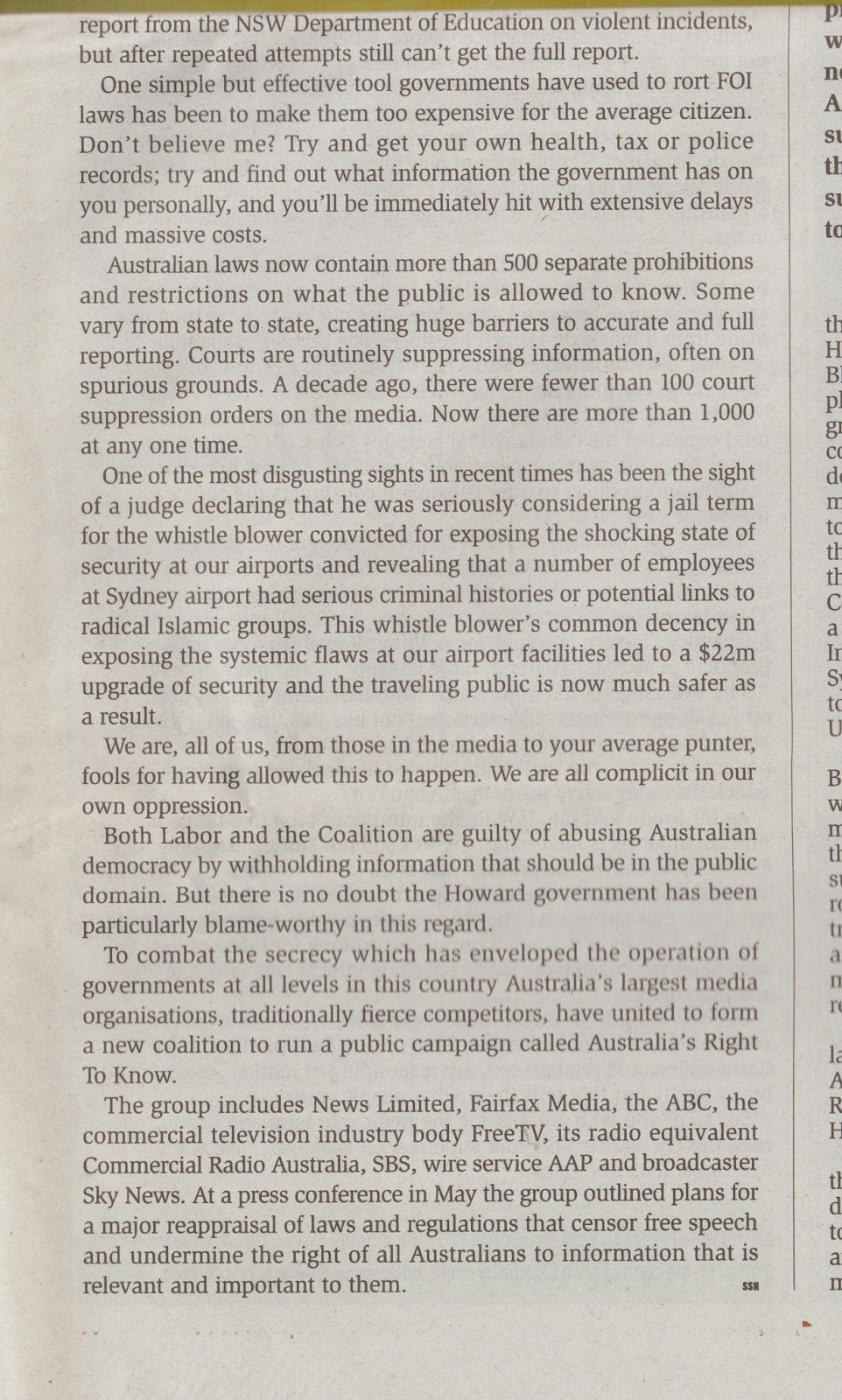Welfare, Debt, Credit, Bureaucracy and Betrayal: the Howard Years
With special guests:
- Peter Saunders, senior researcher, Centre for Independent Studies
- Scott Garman from New Hampshire Commission on the Status of Men, the only Commission for Men anywhere in the world
- Tony Miller, founder of Dads In Distress
- Tom Mok on Child Support Agency’s misleading data and
- Julie Owens, Labor MP for Parramatta.
This was a particularly good show, so don’t miss it. The New Hampshire Commission on the Status of Men is the only such organisation in the world and a pointer to how the Australian Government could address its chronically institutionalised anti-male bias.
As well Julie Owens, the Labor MP for Parramatta, talks knowledgeably about why the so-called Howard battlers have turned so viciously against the government. Just like separated dads, the battlers feel utterly betrayed by the Howard government. They were encouraged by the government’s rhetoric and the $7,000 first home buyers grant to get into a mortgage and now find themselves drowning in debt and living on credit. The claim that interest rates would be kept low has turned out to be as hollow as much of the government’s other rhetoric.
As well we have a brief call from Tony Miller from Dads in Distress, a self-help organisation with meetings around the country which continues to do a marvellous job saving the lives of distraught men and mopping up the mess of our family law and child support systems. Tony is pleased to announce that at the last minute his organisation has been given funding sufficient for it to survive over the next four years through the actions of the Minister for Families Mal Brough.
As well Julie Owens, the Labor MP for Parramatta, talks knowledgeably about why the so-called Howard battlers have turned so viciously against the government. Just like separated dads, the battlers feel utterly betrayed by the Howard government. They were encouraged by the government’s rhetoric and the $7,000 first home buyers grant to get into a mortgage and now find themselves drowning in debt and living on credit. The claim that interest rates would be kept low has turned out to be as hollow as much of the government’s other rhetoric.
As well we have a brief call from Tony Miller from Dads in Distress, a self-help organisation with meetings around the country which continues to do a marvellous job saving the lives of distraught men and mopping up the mess of our family law and child support systems. Tony is pleased to announce that at the last minute his organisation has been given funding sufficient for it to survive over the next four years through the actions of the Minister for Families Mal Brough.
tagged  Discrimination,
Discrimination,  International Perspectives,
International Perspectives,  Male-Friendly Services,
Male-Friendly Services,  Men's Groups,
Men's Groups,  Political Activism,
Political Activism,  Suicide
Suicide

